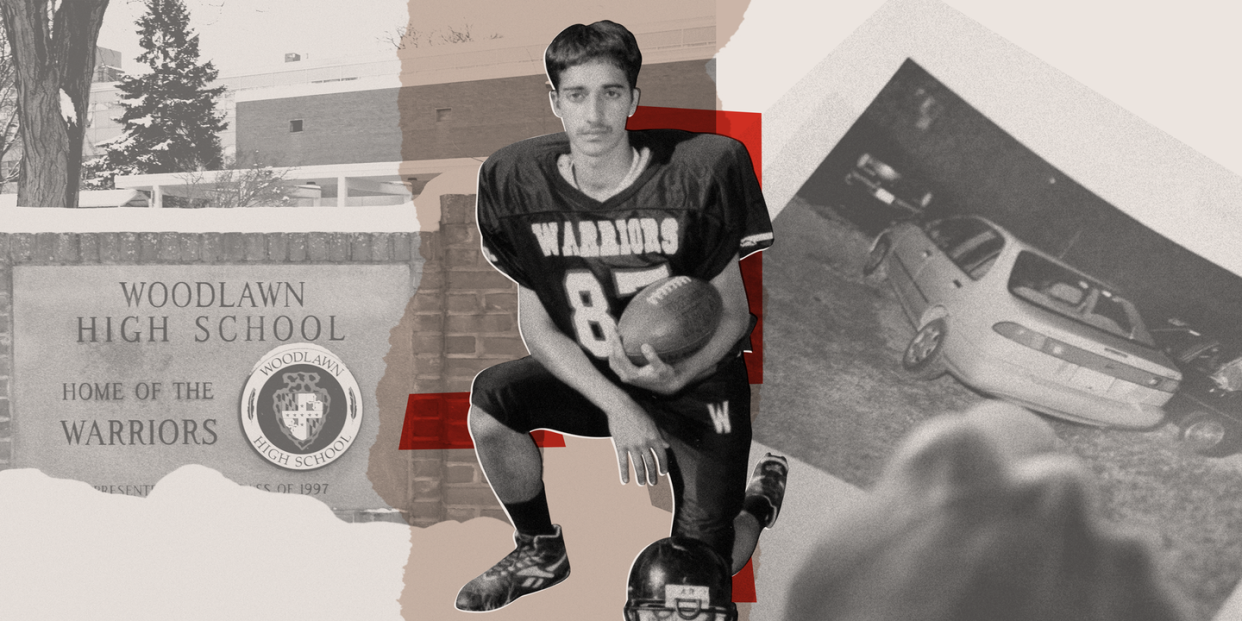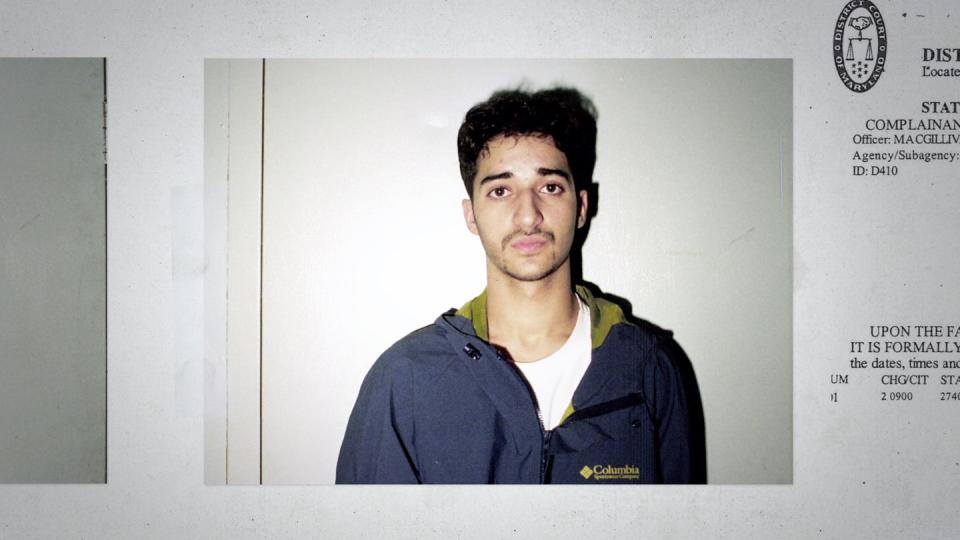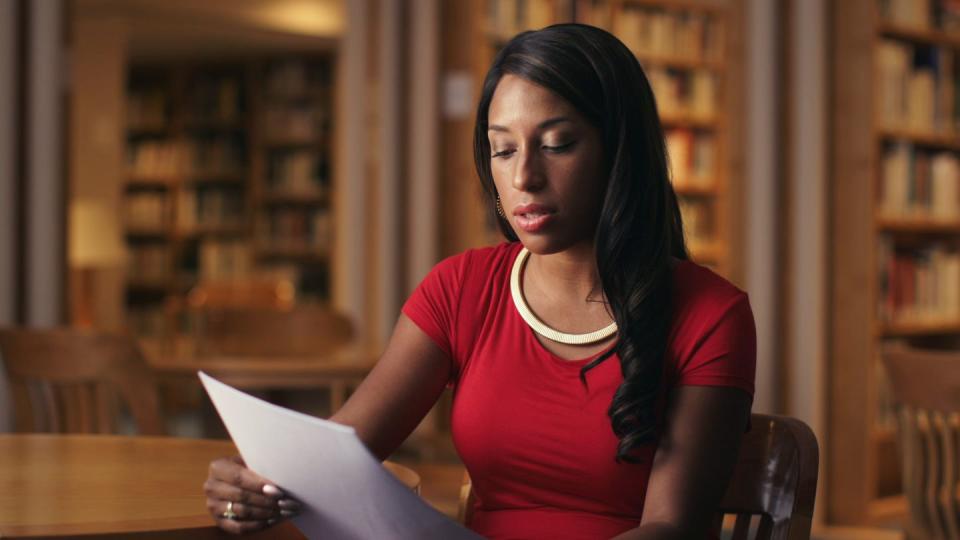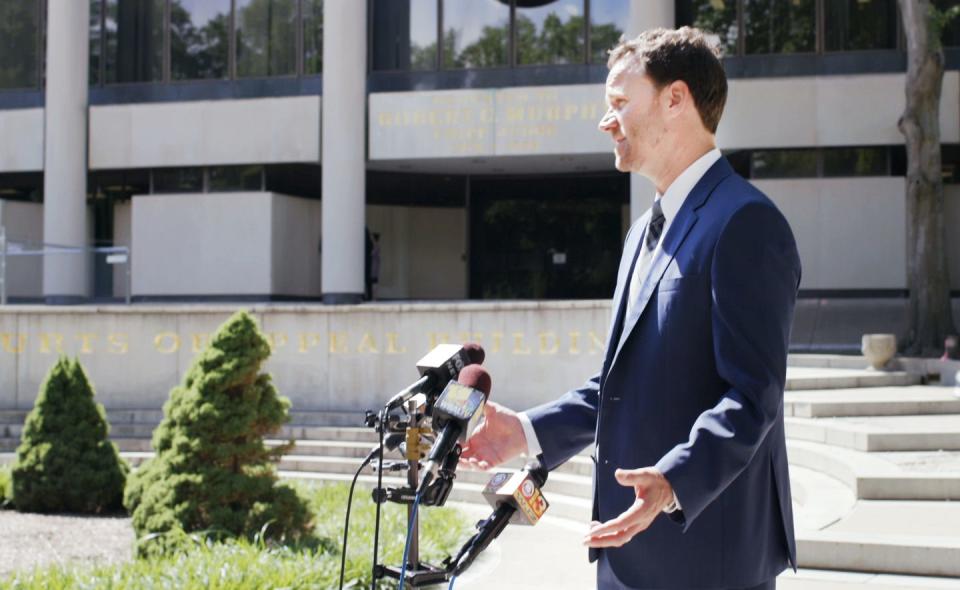A Complete Timeline of 'The Case Against Adnan Syed'

The groundbreaking podcast Serial, which re-investigated the 1999 murder of Baltimore high schooler Hae Min Lee and subsequent conviction of her former boyfriend Adnan Syed, ended on an ambiguous note. While host Sarah Koenig expressed significant doubt as to whether Syed was guilty, and did state that she felt he should not have been convicted based on the evidence presented at trial, the podcast wasn't able to reach the clear conclusion that legions of obsessive listeners had hoped for. But the podcast did ignite a level of public interest that breathed new life into the case, and less than two years after Serial ended, a judge vacated Syed's conviction and ordered a new trial. However, an appeals panel of seven judges ruled on March 9 (on a 4-3 vote) that Syed will not receive a new trial.
HBO's four-part documentary The Case Against Adnan Syed, which began filming in 2015 and wrapped last year, chronicles the many developments in Syed's case since Serial and presents new evidence and new interviews with key figures. The almost two decades-long case is extraordinarily complex, featuring numerous timelines, theories and conflicting testimony, and the nuances are explored extensively in Serial, the Undisclosed podcast, and the HBO series. Ahead of tonight's final episode, here's a full timeline laying out the essential facts of Syed's case.
January 13, 1999 : Hae Min Lee disappears.
Eighteen-year-old Hae Min Lee was reported missing by her family after she failed to pick up her younger cousin from elementary school on the afternoon of January 13. As reported in Serial, Lee had last been seen by several fellow students at Woodlawn High School that afternoon, leaving school after lessons had ended for the day at 2:15 p.m.

February 9, 1999 : Lee's body is found.
Lee’s body was discovered in Baltimore’s Leakin Park by a passerby, partially buried in a shallow grave. The police confirm to the press that they are investigating her death as a homicide.
February 12, 1999 : Police receive an anonymous tip.
The Baltimore City Police received an anonymous phone call advising them to investigate Lee’s ex-boyfriend, Adnan Syed, for the murder. As described on the Serial podcast, Lee and Syed dated for much of 1998, and had broken up towards the end of the year. Prosecutors would later allege that Adnan was angry after their breakup and jealous that Lee had begun dating someone else.
February 28, 1999: Adnan Syed is arrested.
Syed was arrested at his home by Baltimore police in the early hours of the morning, and charged with first-degree murder as an adult-even though he was only 17 at the time. The arrest came after police had subpoenaed Syed’s cellphone records, and questioned two people from his call log: Jay Wilds and Jennifer Pusateri. As detailed in Serial, Wilds told police that he had helped Syed bury Lee’s body and hide her car, while Pusateri said that Wilds had also confessed this to her.

December 15, 1999: Syed’s first trial ends in a mistrial.
The tenth episode of Serial goes into detail about both of Syed’s original trials, the first of which lasted just three days in December of 1999. After jurors accidentally overheard an exchange in which the judge called Syed’s attorney Cristina Gutierrez “a liar," a mistrial was declared.
February 25, 2000: Adnan Syed found guilty.
At his second trial, Syed, then 19, was convicted of first-degree murder, and sentenced to life in prison plus 30 years. The prosecution relied heavily on Wilds’s testimony against Syed, and on location data from Syed’s cellphone records.
March 19, 2003: Syed’s first appeal is denied.
Syed’s appeal was submitted by new attorneys on February 27, 2002, and was denied just over a year later. The judge’s full written decision is available to read online in two parts. (Click here for part one and here for part two.)
May 28, 2010: Syed’s new defense attorney, C. Justin Brown, files another appeal.
The new appeal was for post-conviction relief on the basis that Syed had inadequate assistance of counsel during his trial. In the petition, Syed’s new attorney, C. Justin Brown, laid out a number of failures on the part of original attorney Cristina Gutierrez. Most significantly, Brown argued that Gutierrez failed to investigate or call a potential alibi witness in Asia McClain, a classmate of Syed’s who claimed that she saw him at school on the afternoon of January 13, at the exact time Lee was allegedly killed. The petition argued that McClain’s testimony would have directly challenged the State’s theory of the case, and potentially changed the outcome of the trial.

December 30, 2013: Post-conviction relief is denied.
Arguments in the post-conviction relief case were heard in October of 2012, and two months later, the Circuit Court for Baltimore City denied Syed’s petition for relief. Addressing the Asia McClain complaint specifically, the written decision read as follows: “It appears that trial counsel was made aware of Ms. McClain and made a strategic decision not to pursue her for the purpose of an alibi.” In other words, the court ruled that not calling or investigating McClain was a strategic move on Gutierrez’s part, and not evidence of inadequate assistance of counsel.
February 6, 2015: Syed is given permission to appeal the denial.
Maryland’s Court of Special Appeals grants Syed’s application to appeal the denial of post-conviction relief. The court later sent Syed’s case back to the Baltimore City Circuit Court, where Syed’s attorney filed a motion asking for the post-conviction relief case to be reopened.

August 24, 2015: New cell tower evidence is submitted.
Brown submitted a supplement to the motion to reopen based on new information that attorney Susan Simpson had uncovered about the reliability of cell tower evidence. In the original trial, the State leaned heavily on Syed’s cellphone records-and specifically his incoming call log-to determine his location on the day of Lee’s disappearance. Simpson discovered an instruction sheet from AT&T-not used at the original trial-which stated that incoming calls cannot be reliably used to determine location. This, Brown wrote, showed that “the cell tower evidence used against him was unreliable and should have been excluded from trial." In a later filing, the State’s expert witness, Abraham Waranowitz, signed an affidavit confirming that he was not shown the AT&T instruction sheet, and that it would have changed his testimony.
November 6, 2015: The post-conviction relief case is reopened.
The Circuit Court agreed to a new post-conviction relief hearing to cover several specific areas of argument: Asia’s testimony, the cell tower evidence, the allegation of ineffective assistance of counsel relating to both, and the possibility of prosecutorial misconduct during the original trial. In his written decision, Judge Welch noted that “reopening the post-conviction proceedings would be in the interest of justice for all parties."
February 3-9, 2016: Adnan’s post-conviction relief hearing takes place.
Though originally scheduled to last two days, the PCR hearing was extended and ultimately went on for five. The court heard testimony from a number of key witnesses including Asia McClain and Gerald R. Grant, an expert witness on cell phone technology.

June 30, 2016: Syed’s conviction is vacated.
Judge Welch vacated Syed’s original conviction and ordered a new trial on the basis of the evidence given in the February 2016 hearing. In his full written opinion, Welch noted that Jay Wilds’s testimony was inconsistent with the State’s version of events, and that Gutierrez “rendered ineffective assistance when she failed to cross-examine the state's expert regarding the reliability of cell tower location evidence.” Given that such a cross-examination could have led to a different outcome, Welch concluded that Syed should be granted a new trial. A subsequent petition to allow Syed out of prison on bail until his new trial was denied.
March 29, 2018: Syed’s new trial is upheld by the Court of Special Appeals.
After multiple appeals from the State to overturn Judge Welch’s 2016 decision, the Maryland Court of Special Appeals upheld the decision to grant Syed a new trial.
July 12, 2018: The State files another appeal, which is granted.
The case continued to drag on into the summer of 2018, as Maryland’s Court of Appeals responded to the State’s appeal by agreeing to review the decision made in March by the Court of Special Appeals. This is the final stage in the State’s appeals process. “We are frustrated that this process has dragged on so long,” Brown wrote in an online update. “Syed was granted a new trial more than two years ago, yet he remains in jail. But there is nothing we can do about this; it is the system we live in.”
November 29, 2018: Maryland’s Court of Appeals hears oral arguments.
An appeals panel of seven judges heard oral arguments relating to the final appeal in Syed’s case. “We are now waiting to see what the Court of Appeals will decide,” Brown wrote, noting that there is no precise timetable for when the court will announce its ruling.
March 9, 2019: Syed is denied a new trial by Maryland's Court of Appeals.
In a shocking reversal, Maryland's highest court announced this month that Syed will not receive a new trial, reinstating his murder conviction and reversing the Court of Special Appeals' decision from last year. The court ruled in a 4-to-3 decision that while Syed's defense lawyer had been "deficient" in not calling Asia McClain to testify, her deficiency was not enough to "prejudice" the outcome of the trial.
"We are devastated by the Court of Appeals’ decision but we will not give up on Adnan Syed," Brown wrote in a statement. "Our criminal justice system is desperately in need of reform. The obstacles to getting a new trial are simply too great." Brown questioned the court's assertion that McClain's testimony would not have affected the outcome of the proceedings: "We think just the opposite is true. From the perspective of the defendant, there is no stronger evidence than an alibi witness."
March 28, 2019: New DNA evidence is released.
The Baltimore Sun released documents relating to DNA testing that was carried out in the fall of 2018. Per the documents, prosecutors tested twelve items found at the scene in Leakin Park, including Lee's necklace, clothing, and fingernail clippings. None of the samples tested positive for either Syed or Wilds's DNA.
“NOTHING was matched to Syed,” Brown confirmed on Twitter. “There is no forensic evidence linking him to this crime.” In an email to the Sun, Brown wrote: “While these DNA results do not reveal the true killer, they do go a long way in showing that the wrong person is in prison." Maryland Attorney General’s Office spokeswoman Raquel Coombs said in a statement that these results "in no way exonerate" Syed.
('You Might Also Like',)

